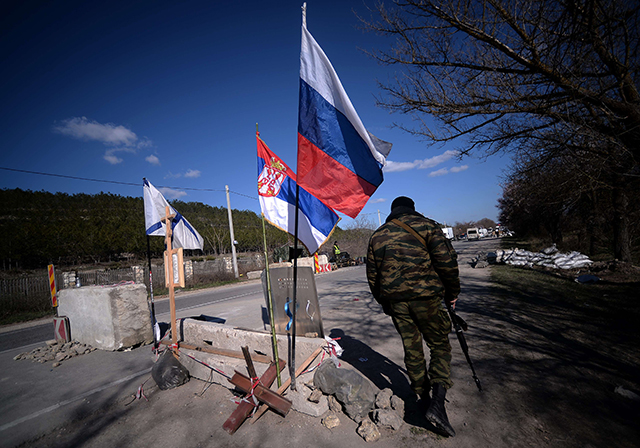The end of a post-Cold War peace and the biggest event since the fall of the Berlin Wall—that’s how panelists at The Heritage Foundation described the ongoing situation in the Crimean peninsula, which is slated to hold a referendum this Sunday to decide if it wants to be a part of Russia.
The current Ambassador to the United States from Estonia, H.E. Marina Kaljurand, described the Crimean government as a “puppet” for Russia’s Prime Minister Vladimir Putin and called this weekend’s referendum in the peninsula ”illegal.”
>>> MORE: Obama’s Meeting with the Ukrainian Prime Minister
The ambassador was quick to remind the audience that while no one is looking to escalate tensions, it’s important to remember that what’s happening is a clear “violation of international law,” necessitating accountability.
Panelists predicted that Russia’s recent aggressions are just the beginning. Former Ambassador to NATO Kurt Volker warned that Russia will become emboldened after this weekend’s referendum in the Crimean peninsula (where it’s likely they will vote to side with Russia), and that could encourage a spillover effect in other parts of Ukraine.
The hostilities should not be surprising, according to Dr. Stephen Blank, because they continue an imperialistic streak that runs deep in a Russian foreign policy that has never quite adjusted to the fall of the Soviet Union in 1991.
Providing greater context to this point, Heritage’s Luke Coffey was quick to point out that while Russia has increased military spending during the last few years, the United States and NATO are shrinking their militaries to levels not seen since World War I and World War II, including a U.S. Navy that is smaller than it was prior to World War I.
The European Union’s hesitation and President Obama’s dithering prompted Coffey to sum up the situation this way: “While the EU is playing checkers, the U.S. is playing golf; Russia is playing chess.”
The Heritage Foundation has not only been covering the Russia-Ukraine situation, but has also been providing key recommendations on why it’s time for a clear strategy—one that’s not based just on hope.

























